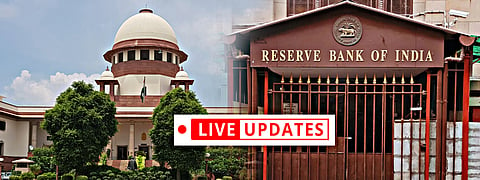- Latest Legal News
- News
- Dealstreet
- Viewpoint
- Columns
- Interviews
- Law School
- Legal Jobs
- हिंदी
- ಕನ್ನಡ

The Supreme Court is hearing the batch of petitions seeking relief in the form of extension of the RBI's Loan moratorium period beyond six months or waiver of interest on interest, in view of the COVID-19 pandemic.